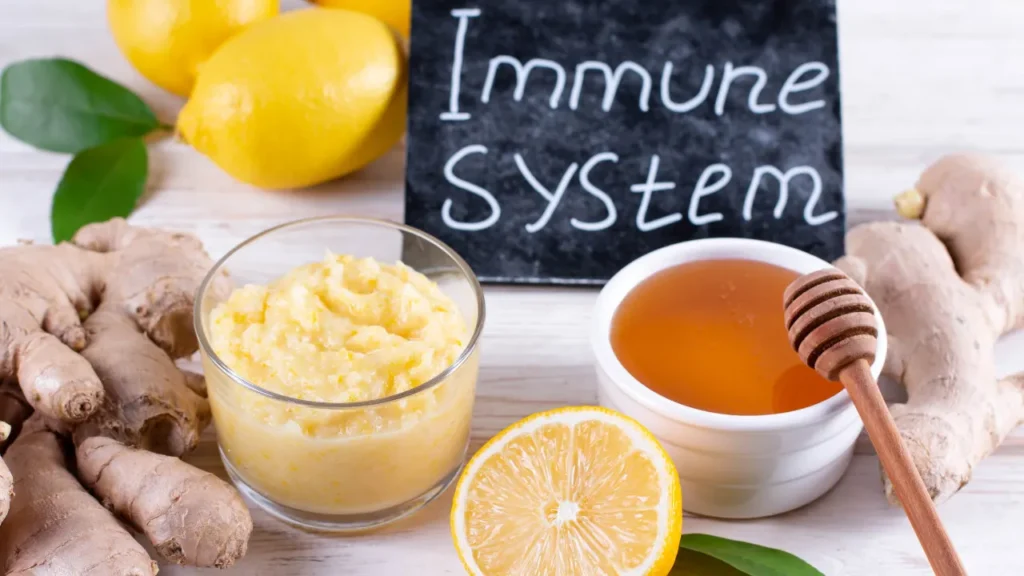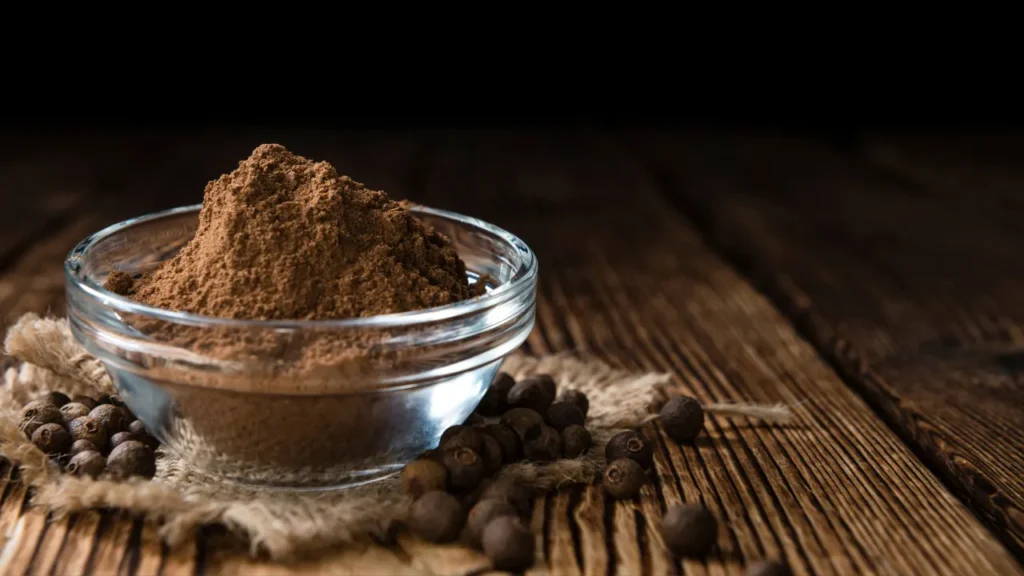The plant species known as allspice, or Pimenta dioica, is indigenous to the Caribbean and Central America. The idea behind the name “allspice” is that it is said to mix the flavors of cloves, nutmeg, and cinnamon. Allspice, on the other hand, is a special spice with a unique flavor and aroma. Allspice has drawn attention recently due to its potential health advantages as a dietary supplement. The nature of allspice, its health advantages, the best dosage, any potential adverse effects, any possible drug interactions, and safe usage will all be covered in this article.
You May Also Like:
ANGELICA: Benefits, Dosage, Side Effects, Drug Interactions, And Other Important Information
Water Germander: Benefits, Dosage, Side Effects, Drug Interactions, And Other Important Information
Allspice: Benefits, Dosage, Side Effects, Drug Interactions, And Other Important Information is an original (NootropicsPlanet) article.
Nature of Allspice
Allspice is a tiny, evergreen tree that can reach a maximum height of 10 meters. It produces tiny white blossoms that turn into tiny brown berries. The volatile oil in the berries gives allspice its characteristic flavor and scent. Eugenol, a substance also present in other spices like cinnamon and clove, is abundant in the oil. Additionally, allspice contains other substances, including caryophyllene and myrcene.
Health Benefits of Allspice
For many years, allspice has been utilized as a home treatment for a number of illnesses. Research has been done recently to assess any potential health advantages. Some of the health advantages of allspice include the following:
Inflammatory-reducing qualities
Allspice has been discovered to have anti-inflammatory qualities, which may help lessen inflammation in the body. The immune system’s natural response to damage or infection is inflammation, but persistent inflammation can hasten the onset of chronic conditions including cancer, heart disease, and arthritis. Eugenol and caryophyllene, two substances found in allspice, have been demonstrated to have anti-inflammatory properties.
Oxidizing qualities
Additionally, allspice possesses antioxidant qualities that can help shield the body from damage caused by free radicals. Free radicals are unsteady molecules that have the potential to harm cells and play a role in the emergence of persistent illnesses. Allspice contains two ingredients, eugonol and myrcene, that have been proven to possess antioxidant properties.
Intestinal wellness
Allspice has traditionally been used as a natural treatment for digestive problems such as bloating, gas, and indigestion. It is thought to improve stomach motility and boost the generation of digestive enzymes.
Pain reduction
Eugenol, a substance in allspice, has been shown to have pain-relieving properties. It is a natural anesthetic used to numb the gums during several dental operations.
Immune system assistance
Caryophyllene, one of the ingredients in allspice, has been demonstrated to have immune-boosting properties. These substances might enhance the body’s capacity to resist illnesses and infections.

Chemistry of Allspice
The chemical elements that makeup allspice include eugenol, caryophyllene, and myrcene, among others. Allspice’s potent clove-like flavor and aroma are due to eugenol, which has also been proven to have analgesic and anti-inflammatory properties. Myrcene, a terpene, has been discovered to have sedative and pain-relieving effects, while caryophyllene, a sesquiterpene, has been found to have anti-inflammatory and antioxidant characteristics. Other substances in allspice, such as flavonoids, phenolic acids, and tannins, also contribute to its health-promoting qualities.
Physiological Mechanisms of Action
Numerous physiological modes of action have been linked to the possible health advantages of allspice. Among these mechanisms are:
Inflammatory effects prevention
Eugenol and caryophyllene, two substances found in allspice, have anti-inflammatory properties. Although inflammation is a normal immune system reaction to injury or infection, chronic inflammation has been linked to the emergence of a number of chronic illnesses, such as cancer, heart disease, and diabetes. By lowering inflammation, allspice may aid in the management or prevention of several disorders.
Effects of antioxidants
Allspice includes substances with antioxidant characteristics, such as flavonoids and phenolic acids. Antioxidants help defend the body against oxidative stress, which can harm cells and contribute to the emergence of several chronic diseases. By lowering oxidative stress, allspice may aid in managing or preventing several diseases.
Effects on reducing pain
Eugenol and myrcene are two substances in allspice that have pain-relieving properties. By lowering pain, allspice may help people with chronic pain disorders live better lives.
Effects that improve the immune system
Caryophyllene, one of the ingredients in allspice, has been shown to have immune-boosting properties. By boosting the immune system, allspice may aid in the management or prevention of infections and other disorders.
Gastrointestinal effects
Studies indicate that allspice may have gastroprotective benefits. It has long been used as a digestive aid, which may improve digestion and lessen gastrointestinal inflammation.
Allspice may be a useful nutritional supplement for enhancing general health and preventing chronic diseases due to the combination of these physiological modes of action.

Optimal Dosage of Allspice
It is unknown how much allspice should be taken as a dietary supplement. However, allspice is generally acceptable to use as a cooking spice in moderation. Allspice is frequently employed in traditional medicine as tea or tincture. The suggested dosage for allspice tea is one to two tablespoons of crushed allspice berries steeped in hot water for 10 to 15 minutes. Before consuming allspice in larger doses or as a supplement, like any dietary addition, it is crucial to speak with a medical practitioner.
Side Effects of Allspice
Generally speaking, allspice is safe to use as a food spice in moderation. Allspice can have negative consequences if consumed in high amounts or used as a supplement. The following are some possible allspice side effects:
Allergic responses
Allspice allergies can occur in certain people, especially if they also have allergies to other spices like cinnamon or cloves. An allergic reaction may cause breathing problems, edema, and itching.
Intestinal discomfort
Allspice use in excess might irritate your stomach and result in nausea, vomiting, and diarrhea.
Skin sensitivity
If allspice oil comes into contact with the skin directly, it may irritate it. Therefore, it is crucial to dilute it prior to applying it topically.
Medicine interactions
Certain drugs, notably blood thinners like warfarin, may interact with allspice. If you are taking any medications, it is crucial to speak with a healthcare provider before taking allspice as a supplement.

Potential Substance Interactions with Allspice
Alcohol and caffeine are two substances with which allspice may interact. Combining allspice with caffeine or alcohol may make you more likely to have stomach distress and other adverse effects. It’s crucial to use allspice sensibly and sparingly.
Best Responsible Uses of Allspice
Allspice can be used sensibly as a cooking spice or nutritional supplement. When taking allspice as a supplement, it’s crucial to use it sparingly and to seek medical advice first. Allspice should be kept out of direct sunlight in a cool, dry location. Allspice should be bought from a reliable supplier to ensure that it is of excellent quality and free of impurities.
Allspice:
Conclusion
Allspice offers a range of potential health benefits due to its rich nutritional profile and bioactive compounds. While allspice shows promise as a natural remedy with various health benefits, more comprehensive research, including human clinical trials, is necessary to confirm its efficacy and safety for specific health conditions. Incorporating allspice into a balanced diet as part of a healthy lifestyle may contribute to overall well-being and complement conventional medical treatments. As with any dietary supplement or herbal remedy, it’s essential to consult a healthcare professional, especially for individuals with underlying health conditions or medications.

References:
- Allspice: Uses, Side Effects, Interactions, Dosage, and Warning. (n.d.). WebMD. Retrieved from https://www.webmd.com/vitamins/ai/ingredientmono-81/allspice
- Phenolic compounds characterization and antioxidant activities of selected spices from Cameroon: https://www.sciencedirect.com/science/article/pii/S0254629918309992
- Medicinal plants and antimicrobial activity. https://doi.org/10.1016/j.jep.2005.04.025
- Antioxidant Effect and Medicinal Properties of Allspice Essential Oil :https://www.intechopen.com/chapters/80859
Important Note: The information contained in this article is for general informational purposes only, and should not be construed as health or medical advice, nor is it intended to diagnose, prevent, treat, or cure any disease or health condition. Before embarking on any diet, fitness regimen, or program of nutritional supplementation, it is advisable to consult your healthcare professional in order to determine its safety and probable efficacy in terms of your individual state of health.
Regarding Nutritional Supplements Or Other Non-Prescription Health Products: If any nutritional supplements or other non-prescription health products are mentioned in the foregoing article, any claims or statements made about them have not been evaluated by the U.S. Food and Drug Administration, and such nutritional supplements or other health products are not intended to diagnose, treat, cure, or prevent any disease.


